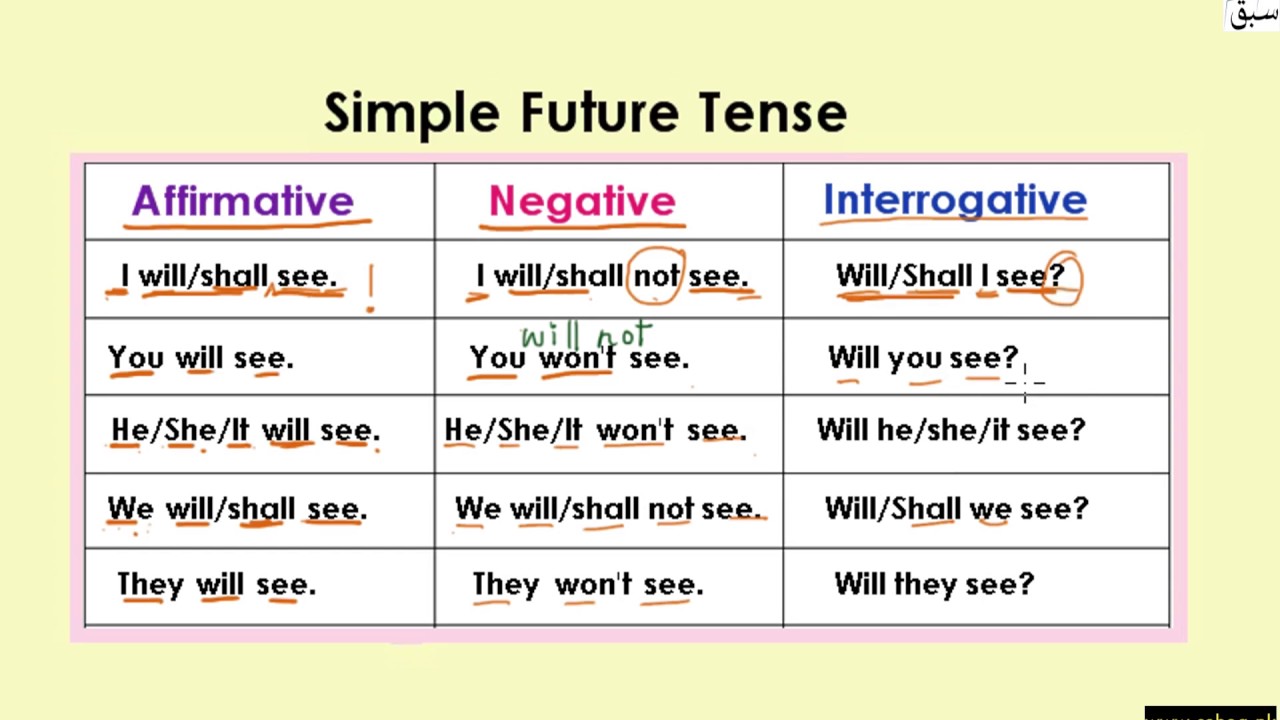
The simple future tense is a verb tense that’s used to talk about things that haven’t happened yet.
EXAMPLE
1. this year jen will read War and Peace
2. it will be hard but she determined to do it
Use the simple future to talk about an action or condition that will begin and end in the future.
How to formulate simple future/h1>
The formula for the simple future is will + [root form of verb].
EXAMPLE
1. i will learn new language
2. jen will read that book
3. my brother will sleep till noon
It doesn’t matter if the subject is singular or plural; the formula for the simple future doesn’t change.
But.....
There is another way to show that something will happen in the future. It follows the formula [am/is/are] + going to + [root form verb].
EXAMPLE
1. i am going to learn new language
2. jen is going to read that book
3. my brother are going to sleep till noon
The going to construction is common in speech and casual writing. Keep in mind though that it’s on the informal side, so it’s a good idea to stick to the will + [root form] construction in formal writing.
How to make simple future negative
To make the simple future negative, the formula is will + not + [root form].
EXAMPLE
1. jen will not quit until she reaches her goal
2. Make sure you arrive on time tomorrow because the bus will not wait
3. He will not say anything bad about his boss.
Using the “going to” construction, the formula is [am/is/are] + not + going to + [root form] .
EXAMPLE
1.Jen is not going to quit before she reaches her goal.
2. Make sure you arrive on time tomorrow because the bus is not going to wait for you.
3. He will not say anything bad about his boss.
How to ask question
To ask a question in the simple future, the formula is will + [subject] + [root form].
EXAMPLE
1. Will Jen finish War and Peace over the summer?
2. Will I have the discipline to study Spanish every day?
3. what will you buy with the money you found?
The formula for the “going to” construction is [am/is/are] + [subject] +going to + [root form].
EXAMPLE
1. Is Jen going to finish War and Peace over the summer?
2. Am I going to have the discipline to study Spanish every day?
3. what are you going to buy with the money you found?
Common Regular Verbs in the Future Tense
| infinitive | future tense | negative |
|---|---|---|
| to ask | asked | did not asked |
| to use | will use | will not use |
| to call | will call | will not call |
| to have | will have | will not have |